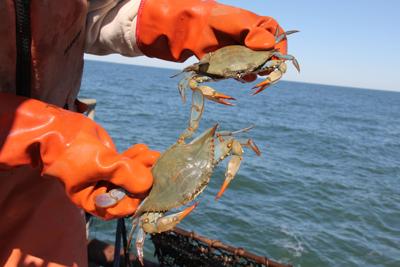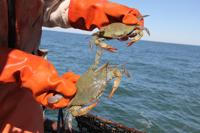VIRGINIA - The Virginia Marine Resources Commission has reversed their previous decision to reopen the blue crab winter season in Commonwealth waters, reinstating a long-held ban.
In June, the VMRC repealed the ban on winter blue crab dredging, which had been in place for over a decade. A 4-1 vote on September 24th has now reversed that decision, restoring the ban for at least the upcoming season.
According to the Chesapeake Bay Foundation (CBF), on Tuesday, the VMRC approved a month-long public comment period focusing on the ban on winter blue crab harvesting. Until they receive that feedback, the Commission cannot vote to approve reopening the season, according to the CBF.
The CBF says the decision to lift the ban drew months of criticism from both Virginia and Maryland, with opposition citing serious repercussions for the blue crab population in the Chesapeake Bay. According to the Foundation, winter dredging overwhelmingly targets female crabs, which lie semi-dormant throughout the colder months. Dredging, which involves large metal structures that scrape crabs from the bottom of the Bay, would heavily impact the female breeding population.
According to the CBF, a 2008 decline in population was what led to winter dredging being banned among other conservation efforts. Virginia’s crabbing season has since run from mid-March through mid-December.
The CBF says a target population of 215 million adult female crabs is needed for an overall healthy blue crab population. In a 2024 study, the CBF says the female population dipped to 133 million, down from 152 million the year prior.
“VMRC’s decision is a significant step toward a brighter future for the Bay’s blue crab population and helps ensure we have the best available science when making important decisions about Virginia’s blue crab fishery,” The Chesapeake Bay Foundation’s Virginia Executive Director Chris Moore said. “This decision allows the scientific stock assessment of the many factors affecting the blue crab population to proceed without significant changes occurring in the fishery at the same time, paving the way for sound evidence-based management decisions of this essential species in the future. We applaud this vote.”





